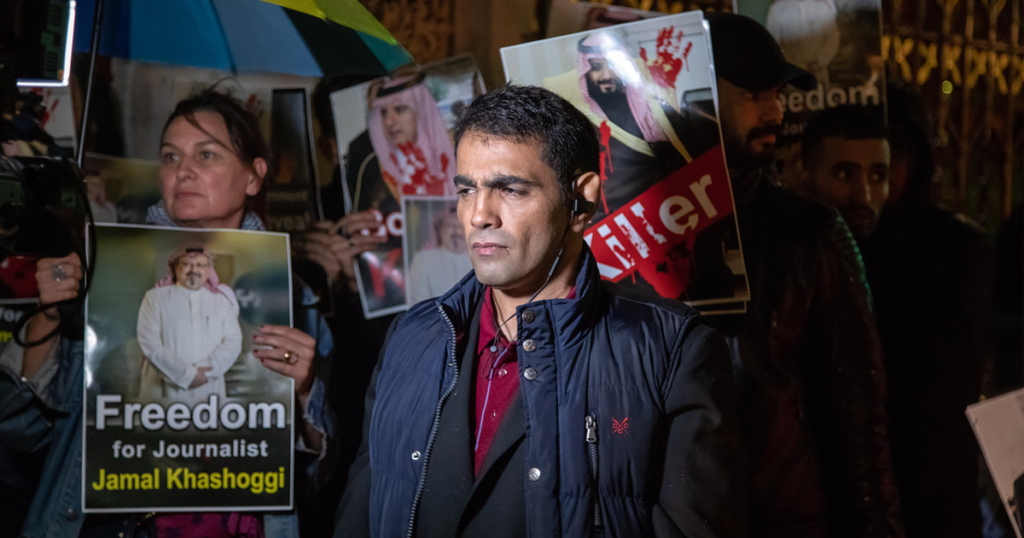
I’ve noticed for a while now that the overuse of two related and necessary concepts—white supremacy and white privilege—is leading us to a point of logical incoherency and moral meaninglessness. Careening down the slippery slope of the contemporary woke-left discourse, we find ourselves in some unexpected polemical places. Consider this November 26 op-ed published in The Guardian, in which Khalid Albaih, a Sudanese artist and cartoonist living in Denmark, makes the most convoluted case that Jamal Khashoggi—the late Saudi dissident, Washington Post columnist, and lifelong Muslim Brotherhood affiliate who in October was monstrously butchered in the Saudi consulate in Istanbul—was a beneficiary of “borrowed white privilege.”
His point, which he only makes in passing, seems to be that we care about the fate of Khashoggi, as opposed to that of nameless millions of others, only because of his proximity to whiteness. To my mind it takes far more intellectual effort to arrive at that conclusion than to accept the idea that it is easier for humans to process the tragic story of a single man than the abstract horror of, for example, the thousands and thousands now suffering in Yemen. Or to realize that for the media mobilizing around his death, Khashoggi’s identity was as a journalist, not as a white-adjacent brown man. But as the short article progresses, the facts of Khashoggi’s death become somewhat irrelevant, a mere afterthought. Rather, its main aim is to make the increasingly familiar argument that there is simply nothing “the West” can do that is not oppressive, irrespective of intent or of whether people like Albaih benefit by living there.
From this impossible logic—ignoring Khashoggi’s murder would be evidence that certain lives don’t matter; caring a lot about Khashoggi’s murder is also evidence that certain other lives don’t matter—Albaih arrives at his real gripe:
Long before the refugee “crisis” that swept Europe after the Arab spring (challenging its self-righteous self-image), most artists, intellectuals, free thinkers, opposition leaders and journalists from the “third world” had, like me, headed west, not only for education but for protection. To be protected by white privilege, even if it’s just by association. And this has only served to further the west’s white savior mentality.
So most of us end up living between a rock and a hard place. Do we stay at home to be threatened by authoritarian regimes and not have full independence and freedom? Or do we try to get to the west to be free, but become a poster child for how good the west is …?
The worst part of this logic is not what it says about whites—after all, if white privilege can be picked up and borrowed by non-whites, how is it fundamentally white?—but what it encourages non-whites to accept about themselves. Rooting out real instances of racism and white supremacy requires seeing clearly enough to know where it is not.

